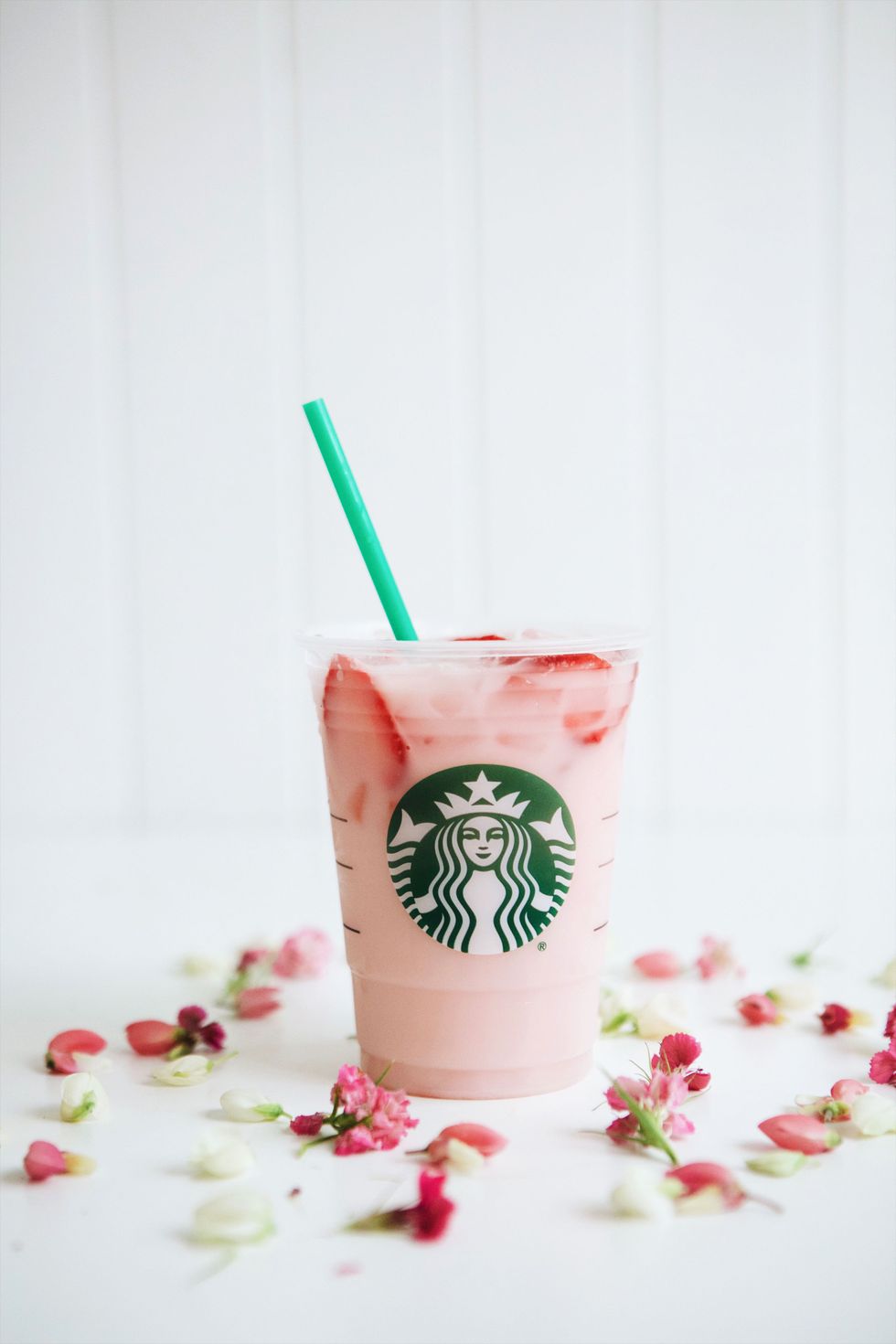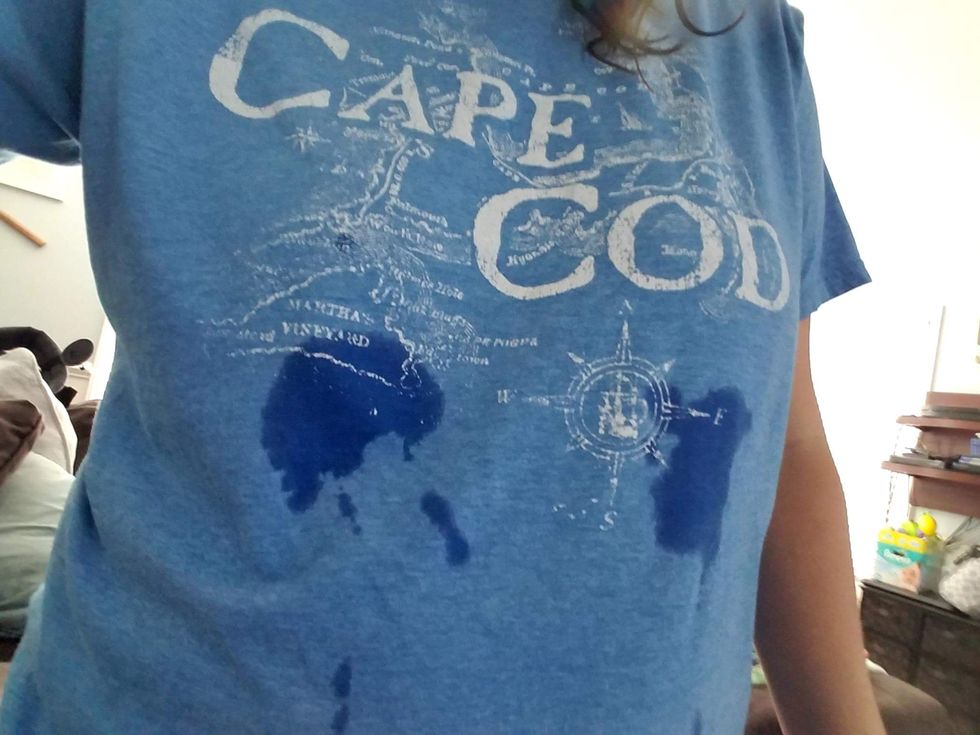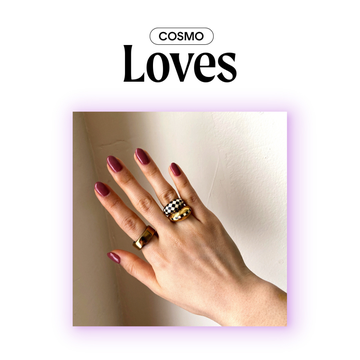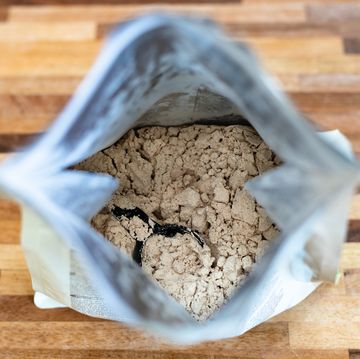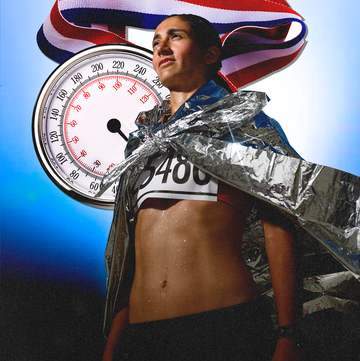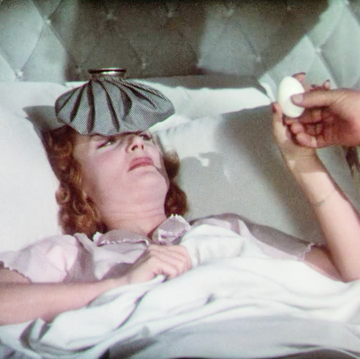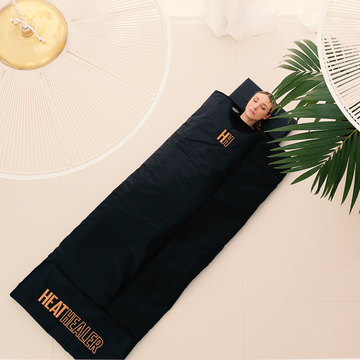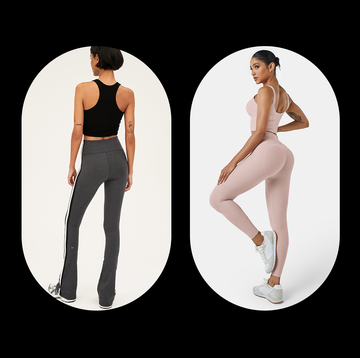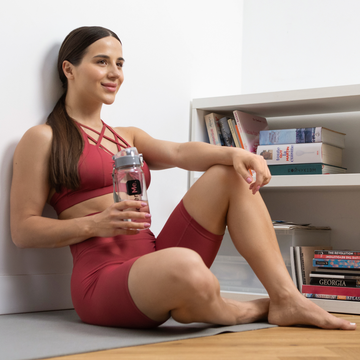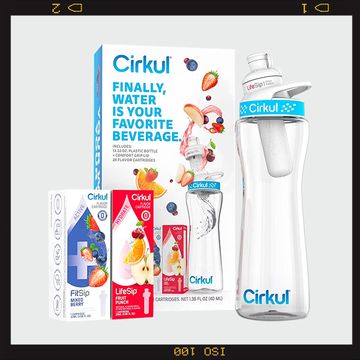New moms who want to breastfeed but find themselves short on milk will try anything to amp up their milk stores. So it's no wonder moms are freaking out over rumors that Starbucks's highly-Instagrammable Pink Drink may boost breast milk production: LifeHacker recently reported several instances of new moms pumping between two and 10 times as much milk as usual after consuming the beverage.
Made of Starbucks's Strawberry Açai Refresher, a slightly caffeinated fruit drink, prepared with Coconutmilk instead of the usual water, this secret menu item was officially added to Starbucks's regular lineup in April of this year.
Its effects on breastfeeding were first reported by North Carolina mother of two Laura Galvin, who's currently breastfeeding her three-month-old son. Several weeks ago, Laura ordered her first-ever Pink Drink at Starbucks and found her breasts engorged throughout the day — odd for her, since she typically nursed every three hours and only felt the need to pump excess milk (about 20 ounces) at night before bed.
Although Laura never struggled to produce enough breastmilk while nursing her daughter, now four years old, or her son, she fell hard for her Pink Drink, and proceeded to order it every day for a week. Like clockwork, her breasts would become engorged during the day, and she'd pump upwards of 40 extra ounces (about 8 bottles) of milk throughout the day — on top of her regularly-scheduled breastfeeding sessions every few hours.
Nothing changed when she swapped her Starbucks Pink Drinks for a DIY version made from Crystal Light On The Go Wild Strawberry with Caffeine, 1.5 cup water, and 1.5 cup of So Delicious Vanilla Coconut Milk.
Now that Laura has a homemade pink drink twice a day, she's had to upsize her freezer to store all the extra breastmilk. She's even had breastmilk leak out of her breasts and completely soak through her shirt, as evidenced by a photo she posted in a breastfeeding support group on Facebook, which has since popped up on several parenting sites:
It's worth noting that Laura hasn't increased her overall fluid intake at all — after being hospitalized for dehydration following the birth of her son, she keeps careful tabs on her fluid intake, and says she's simply replaced the water she used to drink with her new favorite pink beverage. It's why she credits the coconut milk — the only consistent ingredient in the Starbucks version and her homemade recipe — for increasing her milk output.
What Science Says
Apart from anecdotal evidence, there isn't solid data suggesting coconut milk — or any other food or drink — significantly enhances breast milk production. The same goes for most herbal remedies rumored to have similar effects: When researchers from the University of Illinois at Chicago reviewed existing research on herbal remedies often used to promote milk production including fenugreek, milk thistle, torbangun, and shatavari, which are thought to elevate levels of prolactin, a hormone largely responsible for milk production, they found insufficient evidence to recommend their use, according to a paper they published in the Journal of Human Lactation in 2013.
But that doesn't stop Dr. Shari Brasner, MD, a privately practicing gynecologist affiliated with Mount Sinai Hospital in New York City, from recommending remedies backed by anecdotal evidence she's gathered from her patients. (#DesperateTimes.) Although she'd never heard of the Pink Drink trick or rumors of coconut milk's effectiveness, she'll often recommend Mother's Milk Tea, made with fennel, anise, coriander, fenugreek, and blessed thistle because patients have told her it's worked.
"Drinking more fluids in general is always part of my recommendation for women struggling with milk supplies," she says. "You can't produce milk if you aren't taking liquids in."
The same goes for calories: The American College of Gynecologists and Obstetricians (ACOG) recommends that nursing mothers consume up to 500 extra calories a day on top of their regular food intake.
Although Pink Drinks count towards a woman's daily fluid intake, and contains more calories than plain water (a grande Pink Drink has 140 calories), Dr. Brasner isn't about to send her nursing patients straight to Starbucks. After all, without an evaluation, she's hard-pressed credit the drink for increasing Laura's milk supply. It could be chalked up to coincidence, or something as unrelated as her baby's growth spurt, which could increase milk production as a respond to greater demands, Dr. Brasner says.
That said, she stands behind coconut milk's health benefits for breastfeeding moms — the stuff delivers healthy fats, B vitamins, and minerals like iron and calcium. "Even if I can’t biologically explain it, I say there's no harm in trying it," Dr. Brasner says.
How to Make More Breast Milk
There are ways to stimulate milk production — and they don't require a Starbucks run. Dr. Brasner encourages her patients to breastfeed or pump at least every three hours, since suckling raises prolactin levels and stimulates milk production for the next feeding.
Without a doubt, ample food and fluid intake are also necessary for breast milk production. (Pale yellow urine is a sign you're drinking enough — otherwise, get on it.)
"A lot of new moms forget to take care of themselves — they're not thinking about how much they're eating or drinking," Dr. Brasner says.
The bottom line: If you're a new mom who craves something pretty and pink to drink, you deserve it, regardless of whether it ends up filling your baby's bottles. And if you're worried about providing enough breastmilk for your baby? Chat with your primary care physician or baby's pediatrician — not your barista.
Get all the ~FiTsPiRaTiOn~ directly in your feed. Follow Facebook.com/CosmoBod.
Follow Elizabeth on Twitter and Instagram.

Elizabeth Narins is a Brooklyn, NY-based writer and a former senior editor at Cosmopolitan.com, where she wrote about fitness, health, and more. Follow her at @ejnarins.
